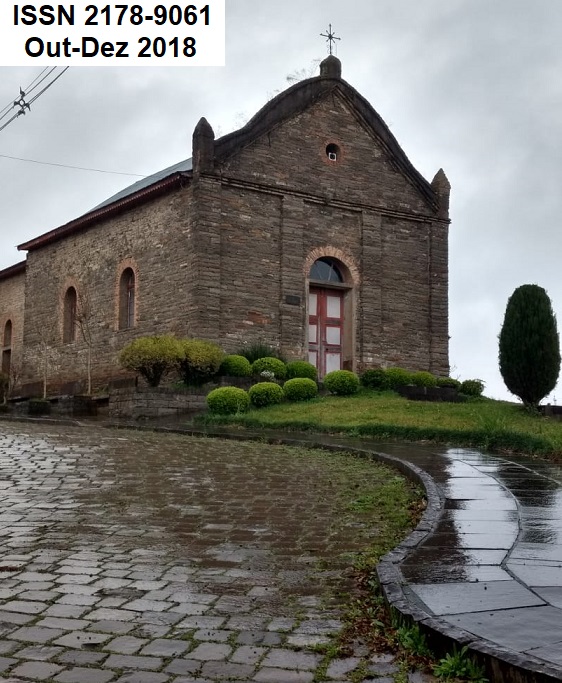The Citation Factor Reconsidered: New Alternative for Tourism and Hospitality Research
Keywords:
Tourism. Hospitality. Epistemology. Research. Journals.Abstract
This note of research deals with the obsession of tourism scholars for citation impacts. Here I analyze not only the problems of tourism research but also how commercial publishers monopolized the production and the academic market through the imposition of the sense of prestige. We hold the thesis that the citation impact corresponds with a narcissist trend oriented to undermine the critical thinking.
AUTOR
Maximiliano E Korstanje - Doutorando. Professor na Universidad de Palermo, Buenos Aires, Argentina. Currículo: http://palermo.academia.edu/MaximilianoEKorstanje/CurriculumVitae. E-mail: maxikorstanje@hotmail.com
REFERENCES
Aramberri, J. (2001). The host should get lost: Paradigms in the tourism theory. Annals of Tourism Research, 28(3), 738-761. Link
Bramwell, B., & Lane, B. (2011). Critical research on the governance of tourism and sustainability. Journal of Sustainable Tourism, 19(4-5), 411-421. Link
Cohen, E. (1988). Authenticity and commoditization in tourism. Annals of Tourism Research, 15(3), 371-386. Link
De Kadt, E. (1979). Social planning for tourism in the developing countries. Annals of Tourism Research, 6(1), 36-48. Link
Jafari, J. (2001). The scientification of tourism. In: Smith, V. L. & Brent, M. (edts) Hosts and guests revisited: Tourism issues of the 21st century, 28-41. USA: Cognizant Communication Corporation.
Krippendorf, J. (2010). Holiday makers. London: Taylor & Francis.
Korstanje, M. E. (2017). Failed Prestige: problems and quandaries of tourism discipline over 40 years. In: R. Krebs (ed). Tourism and Hospitality: perspectives, opportunities, and challenges. New York: Nova Science Publishers.
Li, X., & Petrick, J. F. (2008). Tourism marketing in an era of paradigm shift. Journal of Travel Research, 46(3), 235-244. Link
MacCannell, D. (1976). The tourist: A new theory of the leisure class. Berkeley: University of California Press.
McKercher, B., & Tung, V. (2015). Publishing in tourism and hospitality journals: Is the past a prelude to the future? Tourism Management, 50, 306-315. Link
Riesman, D., Glazer, N., & Denney, R. (2001). The lonely crowd. New Haven: Yale University Press.
The bookseller (2012). Academics call for boycott Elsevier. Link
Tribe, J. (1997). The indiscipline of tourism. Annals of Tourism Research, 24(3), 638-657. Link
Tribe, J. (2010). Tribes, territories and networks in the tourism academy. Annals of Tourism Research, 37(1), 7-33. Link
Urry, J. (1990). The consumption' of tourism. Sociology, 24(1), 23-35. Link
Weber, M. (2009). From Max Weber: essays in sociology. Abingdon: Routledge.
Downloads
Published
How to Cite
Issue
Section
License
Autores que publicam nesta revista concordam com os seguintes termos:
Os Autores mantém os direitos autorais e concedem à revista o direito de primeira publicação, com o trabalho simultaneamente licenciado sob a Creative Commons Attribution License que permitindo o compartilhamento do trabalho com reconhecimento da autoria do trabalho e publicação inicial nesta revista.
Autores têm autorização para assumir contratos adicionais separadamente, para distribuição não-exclusiva da versão do trabalho publicada nesta revista (ex.: publicar em repositório institucional ou como capítulo de livro), com reconhecimento de autoria e publicação inicial nesta revista.
Autores têm permissão e são estimulados a publicar e distribuir seu trabalho online (ex.: em repositórios institucionais ou na sua página pessoal) a qualquer ponto antes ou durante o processo editorial, já que isso pode gerar alterações produtivas, bem como aumentar o impacto e a citação do trabalho publicado (Veja O Efeito do Acesso Livre).








